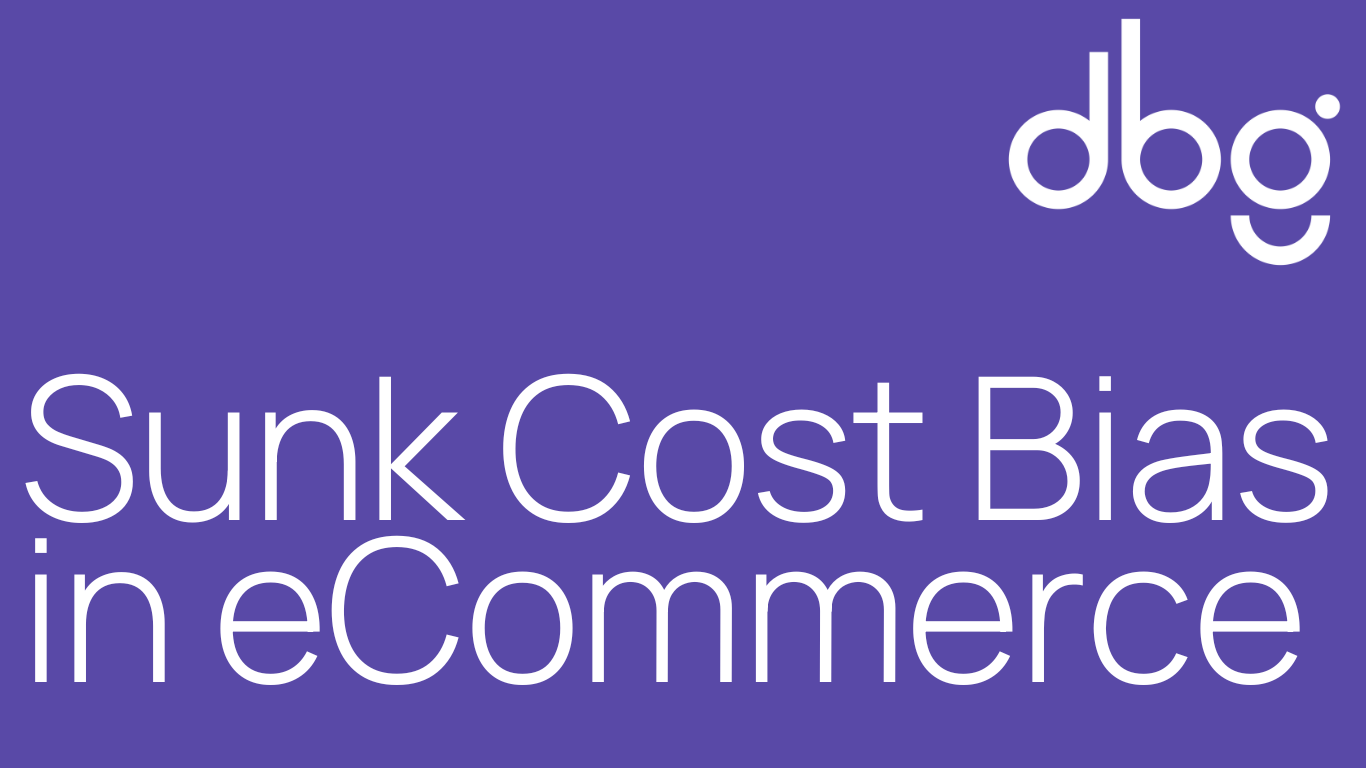 Sunk cost bias is a cognitive bias that compels individuals and businesses to continue investing time, money, or resources into a decision simply because they have already invested heavily in it. This psychological trap can lead to poor decision-making, particularly in eCommerce, where agility and adaptability are critical for sustained success. When businesses hold onto underperforming marketing campaigns, ineffective platforms, or outdated inventory strategies due to past investments, they risk stifling growth and missing new opportunities. Recognising sunk cost bias allows eCommerce businesses to make rational, data-driven decisions rather than being guided by emotional attachment to past choices.
Sunk cost bias is a cognitive bias that compels individuals and businesses to continue investing time, money, or resources into a decision simply because they have already invested heavily in it. This psychological trap can lead to poor decision-making, particularly in eCommerce, where agility and adaptability are critical for sustained success. When businesses hold onto underperforming marketing campaigns, ineffective platforms, or outdated inventory strategies due to past investments, they risk stifling growth and missing new opportunities. Recognising sunk cost bias allows eCommerce businesses to make rational, data-driven decisions rather than being guided by emotional attachment to past choices.
One of the most common examples of sunk cost bias in eCommerce is the reluctance to change platforms or software solutions that are no longer fit for purpose. Many businesses hesitate to move away from inefficient eCommerce platforms, outdated payment systems, or rigid marketing tools because of the initial costs associated with their implementation. This resistance can prevent businesses from embracing newer, more efficient solutions that could significantly improve conversion rates, customer experience, and overall profitability. Instead of viewing past investments as obligations, eCommerce companies should assess their tools based on current and future value.
Marketing strategies also suffer from sunk cost bias, especially when businesses continue running campaigns that fail to deliver results simply because of the amount already spent. Whether it is ineffective pay-per-click advertising, poorly performing influencer partnerships, or email campaigns with low engagement, sticking with underperforming tactics drains resources that could be better allocated elsewhere. The ability to pivot, analyse performance objectively, and cut losses when necessary can enhance marketing efficiency and drive higher returns. Data should always be the guiding factor in these decisions, not past expenditure.
Stock management is another area where sunk cost bias can negatively impact eCommerce businesses. Holding onto slow-moving inventory in hopes of eventual sales often results in unnecessary storage costs, reduced cash flow, and outdated products that lose their relevance in a fast-paced market. Instead of doubling down on stagnant stock, businesses should implement strategic discounting, bundling, or liquidation methods to free up space and reinvest in more in-demand products. A flexible inventory strategy ensures that product offerings remain competitive and responsive to customer demand.
Overcoming sunk cost bias requires a shift in mindset, where decisions are made based on future potential rather than past investments. eCommerce companies that regularly assess their strategies, platforms, and inventory with a fresh perspective will find it easier to optimise operations and improve profitability. By focusing on what delivers the best results today and tomorrow, rather than what has already been spent, businesses can remain agile, competitive, and ready to seize new growth opportunities.
